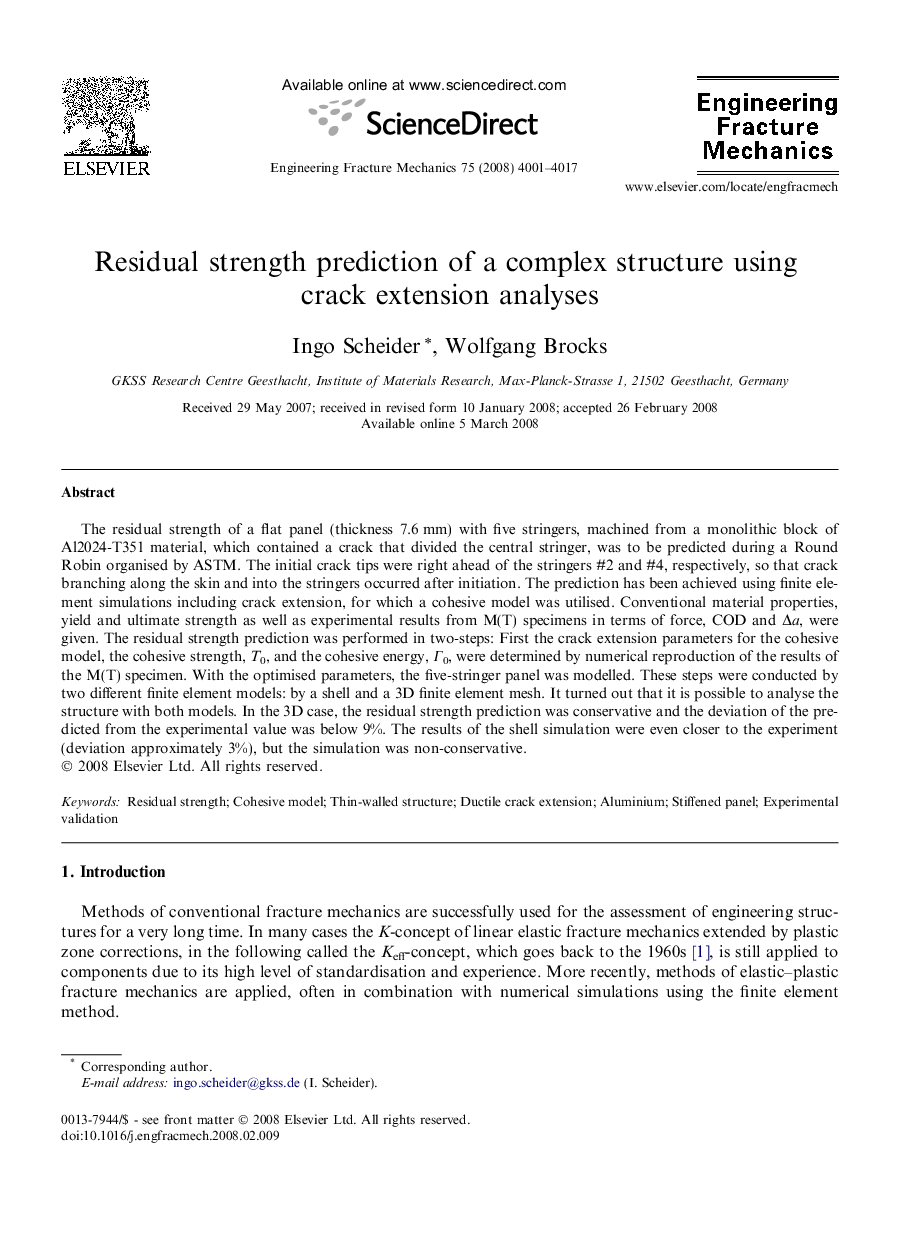| کد مقاله | کد نشریه | سال انتشار | مقاله انگلیسی | نسخه تمام متن |
|---|---|---|---|---|
| 771769 | 897655 | 2008 | 17 صفحه PDF | دانلود رایگان |

The residual strength of a flat panel (thickness 7.6 mm) with five stringers, machined from a monolithic block of Al2024-T351 material, which contained a crack that divided the central stringer, was to be predicted during a Round Robin organised by ASTM. The initial crack tips were right ahead of the stringers #2 and #4, respectively, so that crack branching along the skin and into the stringers occurred after initiation. The prediction has been achieved using finite element simulations including crack extension, for which a cohesive model was utilised. Conventional material properties, yield and ultimate strength as well as experimental results from M(T) specimens in terms of force, COD and Δa, were given. The residual strength prediction was performed in two-steps: First the crack extension parameters for the cohesive model, the cohesive strength, T0, and the cohesive energy, Γ0, were determined by numerical reproduction of the results of the M(T) specimen. With the optimised parameters, the five-stringer panel was modelled. These steps were conducted by two different finite element models: by a shell and a 3D finite element mesh. It turned out that it is possible to analyse the structure with both models. In the 3D case, the residual strength prediction was conservative and the deviation of the predicted from the experimental value was below 9%. The results of the shell simulation were even closer to the experiment (deviation approximately 3%), but the simulation was non-conservative.
Journal: Engineering Fracture Mechanics - Volume 75, Issue 13, September 2008, Pages 4001–4017